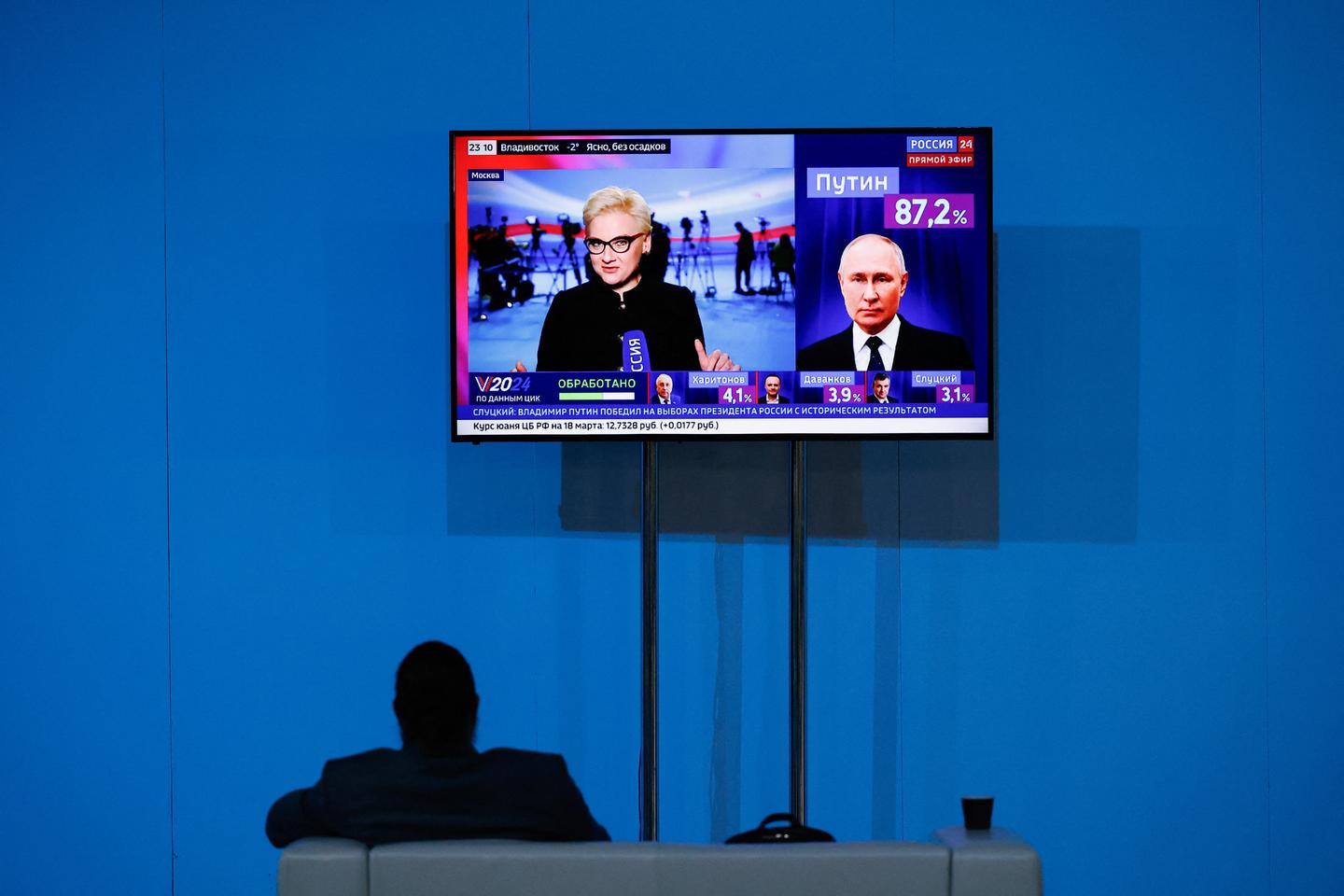


And that makes five. Vladimir Putin has ruled Russia for almost a quarter of a century. His re-election for a fifth presidential term on Sunday, March 17, by more than 87% of the vote, has allowed him to extend this reign to 30 years. If he so desires, he will be able to run for a sixth term in 2030, since he has amended the Constitution accordingly.
There's no need to dwell on the conditions of the vote or the absence of independent observers. This result was expected, given the propaganda through which his regime has ensnared the Russian population, and the merciless wave of repression that has been unleashed on anything remotely resembling opposition since the full-scale invasion of Ukraine on February 24, 2022. Nor could any of the other three approved candidates have been expected to cause the incumbent president any concern: They had been approved precisely in order to spare him any embarrassment. Genuine and courageous troublemakers were eliminated, physically if necessary, as was the case for Alexei Navalny, who died in prison on February 16.
Modern dictators place great importance on the appearance of legitimacy conferred by the popular vote, despite their contempt for democratic procedures. In Putin's case, every time he has gone back up for re-election, he has increasingly needed to show that he has won the people's approval. After being elected with just 53.44% of the vote in 2000, he has consistently improved his score in subsequent elections – except in 2012, when he took back the presidency after Dmitry Medvedev's interim tenure, with a major protest movement against electoral fraud.
Imperial endeavors
It would be easy to imagine that his popularity, which has risen from 53% to 87% in 24 years, could be an expression of voters' gratitude for his track record. Yet what a record! He has never been able to diversify Russia's economy, despite the wealth provided by hydrocarbons. The country's demographics are in such decline that, in one of his recent speeches, he had to beg Russian women to have children. Russia is a country that finds itself in what has now become a permanent state of war, which has led it to recruit from prisons, to negotiate arms supplies from North Korea and Iran, to devote all its resources to the arms industry, and to accept a position as a vassal to its Chinese protector. The country's population of urban elites has been decimated by the mass exodus of young professionals who left to escape mobilization. Its system of government has become so focused on itself that it has made the Soviet Communist Party's Politburo look like a model of democracy.
On the diplomatic front, by dressing up his conquest of Ukraine as an anti-Western crusade, the Russian president has won the sympathy of part of the global South. Yet he can't even take advantage of it: The arrest warrant issued for him by the International Criminal Court for war crimes has forced him to limit his travels abroad.
He has reunited the West against him by invading Ukraine. NATO, whose expansion he has so strongly condemned, has – thanks to him – expanded once again to include two new members, Finland and Sweden.
Buoyed by this latest demonstration of support – much of it genuine – for his plans, Putin will no doubt want to continue his imperial endeavors in earnest. The only way to stop him from swallowing his neighbors and sowing chaos in Europe is to inflict a defeat on him in Ukraine.
